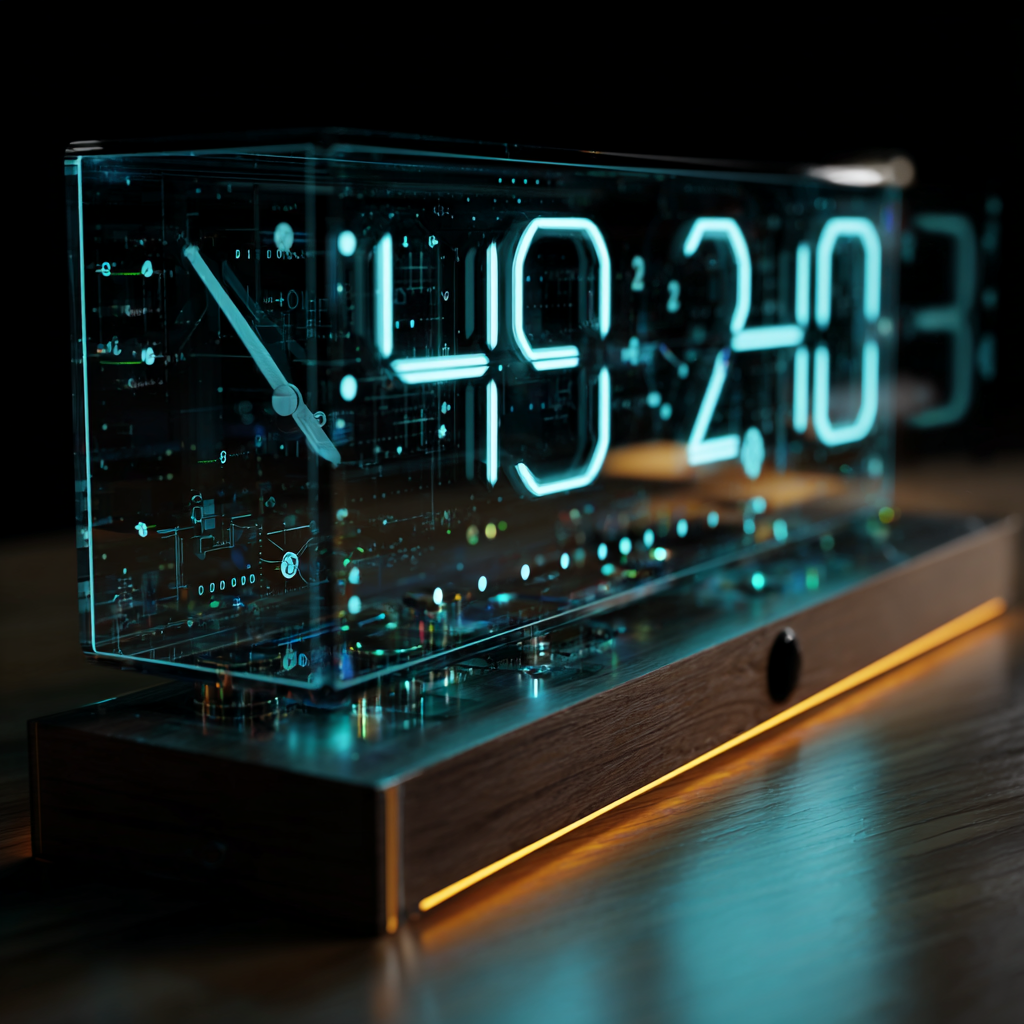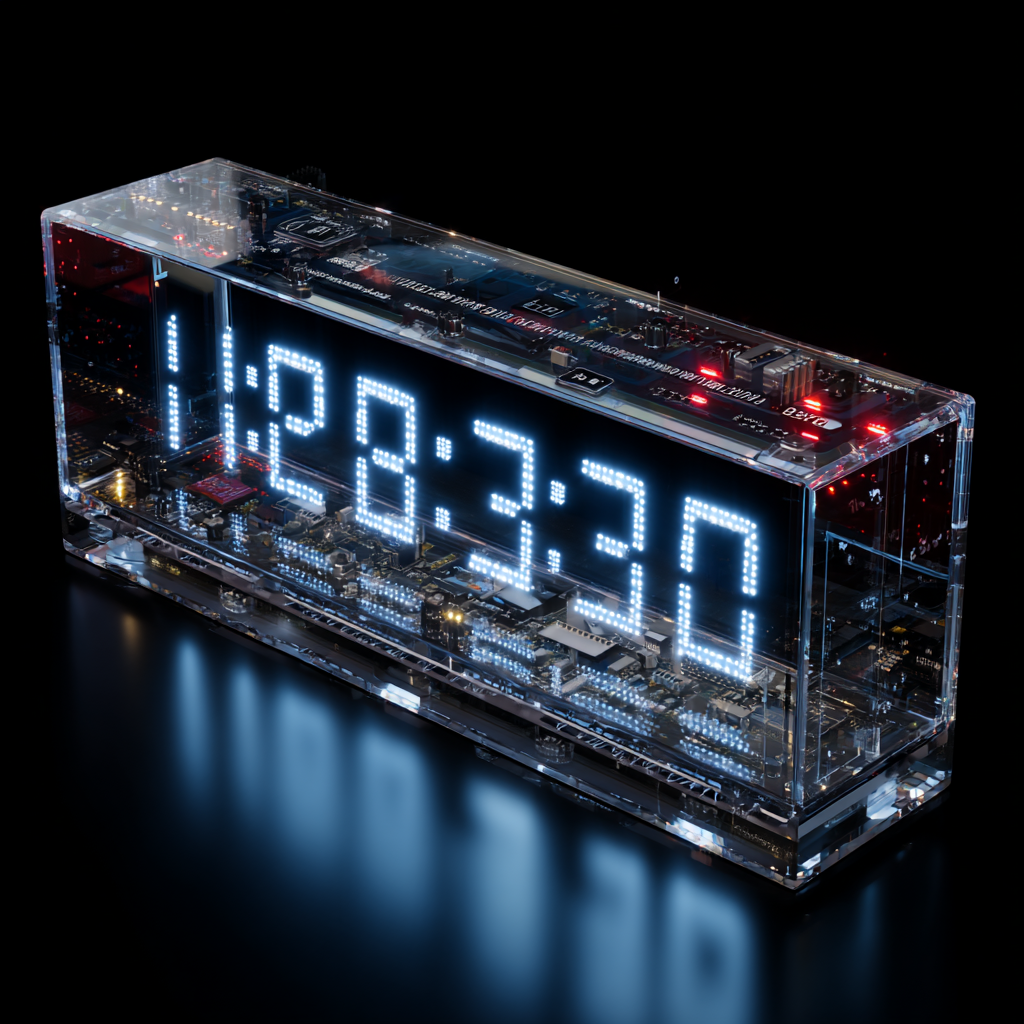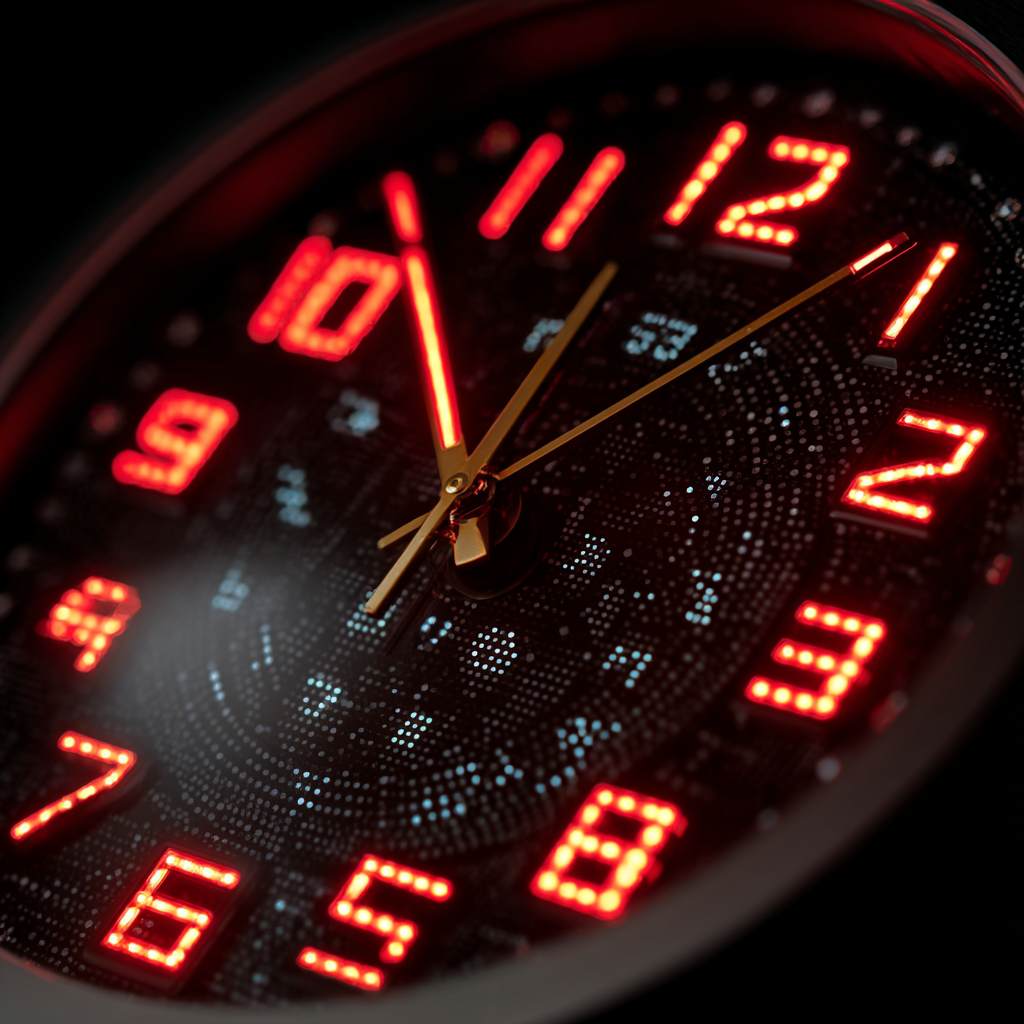In the age of advanced technology, the LED Clock has emerged as a quintessential gadget that combines functionality with aesthetic appeal. As we navigate our busy lives, the need for an accurate, easy-to-read timepiece becomes increasingly important, and the best LED clocks offer a perfect solution. This comprehensive technical overview will delve into the top seven features that distinguish high-quality LED clocks from the rest. From their energy efficiency and display clarity to additional functionalities such as alarms and ambient light sensors, understanding these characteristics will help you make an informed decision when selecting the ideal clock for your home or office. Join us as we explore what makes these modern timepieces indispensable in today’s fast-paced world.

LED clocks have become increasingly popular due to their modern design, energy efficiency, and functionality. Understanding how LED clock technology works is essential for choosing the right model. At the core of LED clocks is a light-emitting diode (LED) that not only provides bright, clear visibility but also consumes significantly less power than traditional bulbs. This technology ensures that the clock is both long-lasting and environmentally friendly, making it a smart choice for the energy-conscious consumer.
 When selecting an LED clock, consider features such as display brightness, which can often be adjusted to suit different environments. Some models come equipped with additional functionalities, such as temperature displays, alarm settings, and even Bluetooth connectivity. These innovations enhance the functionality of an LED clock, integrating it into the modern smart home. As technology continues to evolve, features like USB ports for charging devices are becoming more commonplace, adding to the appeal of LED clocks in everyday use.
When selecting an LED clock, consider features such as display brightness, which can often be adjusted to suit different environments. Some models come equipped with additional functionalities, such as temperature displays, alarm settings, and even Bluetooth connectivity. These innovations enhance the functionality of an LED clock, integrating it into the modern smart home. As technology continues to evolve, features like USB ports for charging devices are becoming more commonplace, adding to the appeal of LED clocks in everyday use.
When selecting the best LED clock, three essential features stand out: brightness, size, and display quality. According to a 2022 report by TechRadar, optimal brightness is crucial for visibility, particularly in varying lighting conditions. Most experts recommend an adjustable brightness range of 20-1000 lux for LED clocks, ensuring that users can easily read the time whether it's day or night. Additionally, a clock with a fading display at night can minimize disruption during sleep.
The size of the clock should also align with its intended use. A survey by Consumer Reports indicates that a larger display (at least 6 inches) is preferred for rooms with longer viewing distances, such as living rooms or bedrooms. Conversely, compact sizes work well for desks or bedside tables, making portability a significant consideration for many consumers.
Tip: When choosing an LED clock, ensure it offers adjustable brightness levels to suit your environment best. Further, prioritize a display resolution that enhances readability, particularly if the clock will be viewed from afar. Investing in a high-quality display can significantly improve user experience, as noted in industry studies emphasizing the importance of visual clarity in consumer electronics.
As smart home technology continues to evolve, LED clocks are stepping up to become integral components of home automation systems. Featuring capabilities that extend beyond mere timekeeping, many of today's top LED clocks can synchronize with various smart home devices, facilitating seamless interactions that enhance everyday living. According to a report by Market Research Future, the home automation market is projected to reach a valuation of $105.22 billion by 2027, highlighting the increasing adoption of smart devices, including LED clocks.

These LED clocks can now be integrated with voice assistants and smart hubs, allowing users to control their lighting, security systems, and even kitchen appliances simply by speaking or tapping on their clock's interface. Data from Statista indicates that by 2025, the number of smart homes worldwide is expected to exceed 500 million. This trend underscores the growing demand for versatile devices that not only tell time but also contribute to a cohesive smart home ecosystem.
With features like customizable alerts and ambient light adjustments, LED clocks are proving to be more than just decorative pieces—they are essential tools for modern living.
When selecting the best LED clock for your needs, one of the critical factors to consider is battery life and power options. LED clocks are available in various formats, some relying solely on batteries, while others can be plugged into an outlet. A battery-operated LED clock offers the advantage of portability, allowing you to place it anywhere without worrying about proximity to power outlets. However, it’s essential to evaluate the battery life; some models may require frequent battery replacements, which can become inconvenient and add to long-term costs.
On the other hand, clocks that utilize power adapters often feature backup battery systems. This combination ensures that your clock remains operational even during power outages. When choosing an efficient LED clock, look for models that offer energy-saving features, such as automatic dimming or daylight sensors. These functionalities not only extend battery life but also enhance the clock’s usability. In addition, consider the type of power options available, as some clocks offer dual power modes, giving you the flexibility to switch between battery and direct power as needed.
| Feature | Description | Efficiency Rating | Battery Life | Power Options |
|---|---|---|---|---|
| Display Quality | High-resolution display for enhanced visibility | A+ | Up to 12 months | Rechargeable battery option available |
| Smart Features | Integration with smart home systems | A | 6-9 months | Standard AA batteries / USB power |
| Alarm Features | Multiple alarms and snooze function | B+ | 12 months | AC adapter included |
| Portability | Compact design for travel | A- | 3-6 months | Battery-operated |
| Brightness Control | Adjustable brightness settings for day/night | A+ | Up to 10 months | USB or wall adapter |
| Additional Functions | Temperature display and time zone settings | B | 8 months | Rechargeable battery |
| Design | Sleek and modern aesthetic | A | 10-14 months | AC and battery options |
When selecting an LED clock, the design and aesthetics play a crucial role in enhancing your living space. An LED clock is not just a functional device; it can serve as a striking piece of decor that reflects your personal style. Consider a sleek, minimalist design if your interior leans toward modern aesthetics, or opt for a vintage-style clock with warm hues if you prefer a more rustic touch. The color of the LED display can also significantly influence the overall ambiance—soft, muted tones can create a calming effect, while vibrant colors might energize your environment.
Additionally, the size and shape of the clock are key factors to consider. A large, wall-mounted LED clock can act as a focal point in a spacious room, while a smaller, desktop model can seamlessly integrate into tighter spaces without overwhelming the decor. Look for unique shapes that can complement the lines of your furniture or the architectural features of your home. By thoughtfully selecting an LED clock that aligns with your design preferences, you can enhance the aesthetic appeal of your surroundings while keeping track of time in style.